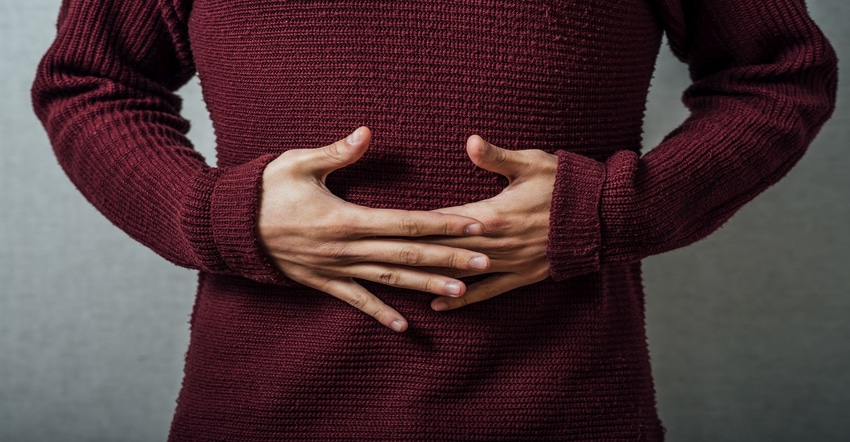Study shows prebiotics help ward off gut issues from antibiotics
New research shows a mixture of prebiotic fibers might help patients deal with the gut problems brought on by antibiotic treatment.

Prebiotic fibers help prevent gut problems associated with the use of antibiotics, a new study in mice published in the journal Nature Communications has found.
The new research was the work of a research team associated with Brown University and the University of Pennsylvania.
The paper, “Fiber supplementation protects from antibiotic-induced gut microbiome dysbiosis by modulating gut redox potential,” examined the effects of a suite of prebiotic fibers in a mouse model.
Antibiotics are a critical component of modern healthcare and a standard treatment for a host of diseases and conditions. But they are sometimes a two-edged sword, causing serious side effects for some patients.
The researchers noted antibiotic-induced gut dysbiosis (AID) “can lead to health complications such as inflammatory bowel disease, aberrant immune function, infection and metabolic disorders.”
Probiotics are sometimes recommended to deal with gut dysbiosis associated with the use of antibiotics. But the researchers cited one study that indicates that approach has issues of its own.
To find a gentler way to address the issue, and not induce oscillations in the microbiome induced by probiotic administration that might take some time to return to equilibrium, the researchers turned to a suite of prebiotic fibers.
Seven fibers used in study
The fibers used in the study were cellulose, levan, dextrin, pectin, inulin, beta-glucan and arabinoxylan.
Month-old female lab rats were divided into control and experiment groups. All the mice received a standard chow diet, with 20% of the overall intake devoted to the prebiotic fiber mix or glucose, depending on the group.
After habituation to their cages and diets, the rats received doses of amoxicillin in their water.
The researchers used longitudinal 16S rRNA sequencing of the rats’ feces to determine the effects of the fiber intervention. They analyzed when (before, during or after administration of antibiotics) it was most effective.
The researchers concluded the prebiotic fibers exerted beneficial effects at all three stages, but that administering them at the same time as the antibiotics was about as effective as giving the mice the prebiotics in advance, which could have benefits in the future clinical application of the technique in humans.
In their paper, the researchers said they “observed reduced abundance of aerobic bacteria as well as metabolic pathways associated with oxidative metabolism.”
“These metatranscriptomic results are corroborated by chemical measurements of eH and pH suggesting that fiber dampens the dysbiotic effects of antibiotics,” the researchers added. “This work indicates that fiber may act as a potential therapeutic for AID by modulating bacterial metabolism in the gut to prevent an increase in redox potential and protect commensal microbes during antibiotic treatment.”
GPA director: Research fills in prebiotics picture
Len Monheit, executive director of the Global Prebiotic Association, said the research was an important milestone for the category.
For one thing, he said the research emphasizes the complex, heterogenous nature of the microbiome and how prebiotics figure into that picture. GPA has been advocating for a definition of prebiotics that goes beyond merely promoting the growth of certain select microorganisms.
“Quite often the action of fiber and prebiotics gets simplified to ‘they feed bacteria,’” Monheit told Natural Products Insider. “This study underscores that it is much more complicated than that, and essentially, the prebiotics ensure a fertile environment, in this case, restoring homeostasis that has been disrupted by antibiotics—through various mechanisms.
“While on animals, this research underscores the fact that it is more than metabolism of carbohydrates and upregulation of short chain fatty acids at work here,” Monheit added. “We think this work is foundational, highly applicable and deepens our understanding of prebiotic activity.”
Read more about:
Supplement scienceAbout the Author(s)
You May Also Like






.png?width=800&auto=webp&quality=80&disable=upscale)